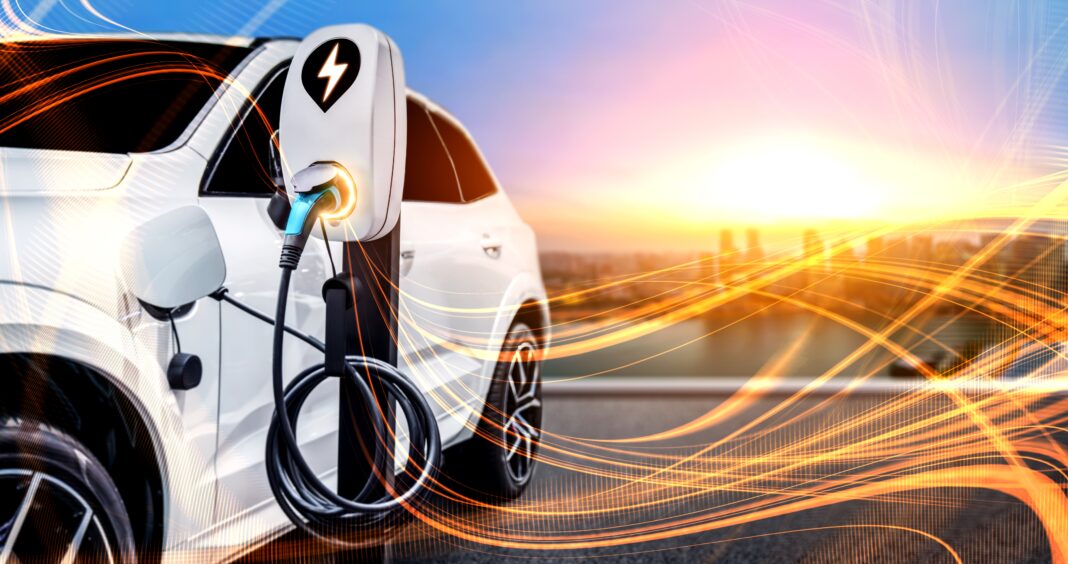Electric Vehicle (EV) Infrastructure |
There are many considerations as EVs are required to be more present on city roads to meet global net zero goals. What will be done to develop electric vehicle infrastructure? With cars that will only run on electrical energy, there must be significantly more EV charging stations developed in world cities.
EV charging stations must be developed to be abundant in some cities, and ubiquitous in most vehicle-heavy cities worldwide. With internal combustion engine (ICE) phase-outs beginning to be implemented in world cities, there is a much greater need to have gas stations updated and/ or replaced.
While the high cost of EVs has for about the last ten years has made some drivers reluctant to purchase EVs, prices are going down as EV manufacturing increases. Even common vehicle manufacturers, like GM, VW, and Toyota, are drastically increasing their production of EVs. One improvement that has been helping EV adoption in the mass market for vehicles, is lower lithium-ion battery cost.
There is the potential for the rebates on EVs to increase significantly. While it may sometimes be a bit of a challenge to receive good financing on these often-expensive cars, there will now most likely be incredibly larger rebates for consumers, helping to draw more drivers to the side of environmentally friendly driving.
EV mandates
In the near future, the sales of electric vehicles will be mandated, and the phase-out of ICE vehicles will begin (and has already begun in many countries, states, and cities throughout the world). Current global roads and fuel infrastructure are built for petrol; ICE vehicles that have historically relied on gasoline.
Recently, EVs, plug-in EVs, and hybrids have made their way successfully into the global market. EVs have dropped in price with lithium-ion batteries getting cheaper and more efficient. Globally, EVs have developed a considerable market share of vehicle sales in many countries.
Now sales of EVs are mandated in many countries, with the implementation of these mandates right around the corner. However, there is still no complete infrastructure developed for the continual charging of EVs that will completely rely upon electricity in most countries.
"Seventeen countries have taken varying types of action, from soft targets to strong commitments, to phase out Internal Combustion Engine (ICE) vehicles and increase the number of Electric Vehicles (EVs)." FROM: theclimatecenter.org/actions-by-countries-phase-out-gas
The EU wants to phase out gas car sales by 2035, and many other countries have announced similar plans. Norway plans to ban sales of gasoline vehicles by 2025 (currently 60% of new car sales are electric). Germany's upper house of legislature passed resolution to only approve emission-free cars for use on the roads by 2030. France plans to ban sales of gasoline vehicles by 2040. [full list below]
Amsterdam: no ICE vehicles will be allowed in city center after 2030.
Brussels: planning to largely ban gasoline powered vehicles from operating in the city by 2035.
Bristol: may be the first city to ban diesel vehicles from entering the city center.
Hong Kong: plans to phase out all gasoline and diesel vehicles by 2030 or 2040.
France is a great example of a national government that incentivizes EV sales; and incentivizes EVs and efficient vehicles with lower emissions. Crit'Air in Paris is one of the largest pioneering programs in a major world city to mandate compliance with emission standards for vehicles (in this case, European emissions standards). After successful implementation in Paris, Crit'Air policies now cover about 28 permanent zones in France... FROM>>> Curbing Auto Emissions to Create Cleaner Air with Crit’Air
Please see this article on>>> the rise of EVs in Oslo, Norway. The share of fully electric vehicles on Oslo's roads is over 15% (with hybrids included, the number is higher); and the majority new car sales in Oslo are hybrids, plug-in electric vehicles (EVs), or 100% EVs. Over half of new car sales are EVs; and when hybrids are added in, internal combustion engine (ICE) vehicles account for only 15% of new vehicle sales in Oslo.
California is the first state in the [US] to commit to [EV only sales by 2035], but could serve as a spark for other states to follow, given its size and historic leadership on regulatory issues. Seventeen countries including France, the U.K. and Germany have adopted goals to phase out internal combustion passenger cars. FROM: wsj.com/california-to-ban-sales-of-new-gas-powered-cars-starting-in-2035

Austria seeks to to phase out registrations of new gas vehicles by 2027.
British Columbia: legislation passed to ban sales of new gasoline cars by 2040
Denmark: plans to ban gasoline vehicles by 2030, and hybrids by 2035; has called on the European Union to expressly permit member states to enact 2030 bans.
Egypt: working on plan to have only electric vehicles by 2040
France: plans to ban sales of gasoline vehicles by 2040
Germany: Bundesrat (upper house of legislature) passed resolution to only approve emission-free cars for use on the roads by 2030.
Iceland: plans to ban registration of new fossil fuel vehicles starting 2030; Reykjavik is eliminating half its gas stations by 2025.
India: set a target of 100% electric vehicles by 2030, and is considering a ban on gas-powered 2- and 3-wheeled vehicles by 2025.
Ireland: legislation proposed to only allow sales of zero emissions vehicles starting 2030
Israel: plans to ban sales of new gasoline and diesel vehicles after 2030
Japan plans to ban sales of new gasoline-only vehicles by 2035.
Korea: contemplating banning sales of new gas vehicles by 2035
Netherlands: all new cars must be emissions-free by 2030; Amsterdam is banning all gasoline/diesel vehicles from its streets by 2030
Norway: The Norwegian Parliament has decided on a national goal that all new cars sold by 2025 should be zero-emission (electric or hydrogen).
Portugal: plans to stop selling new gasoline vehicles by 2040
Quebec: phasing out sales of new gas cars by 2035
Spain: plans to ban the sale of vehicles running on fossil fuels by 2040
Sweden: plans to ban sales of gasoline cars after 2030
UK: plans to ban sales of purely gasoline or diesel vehicles by 2030; Scotland: plans to phase out sales of new gasoline vehicles by 2032.
please also see:
